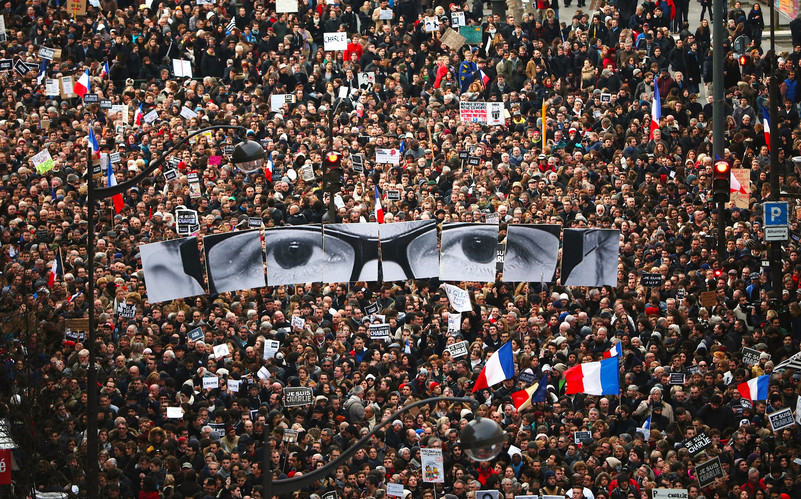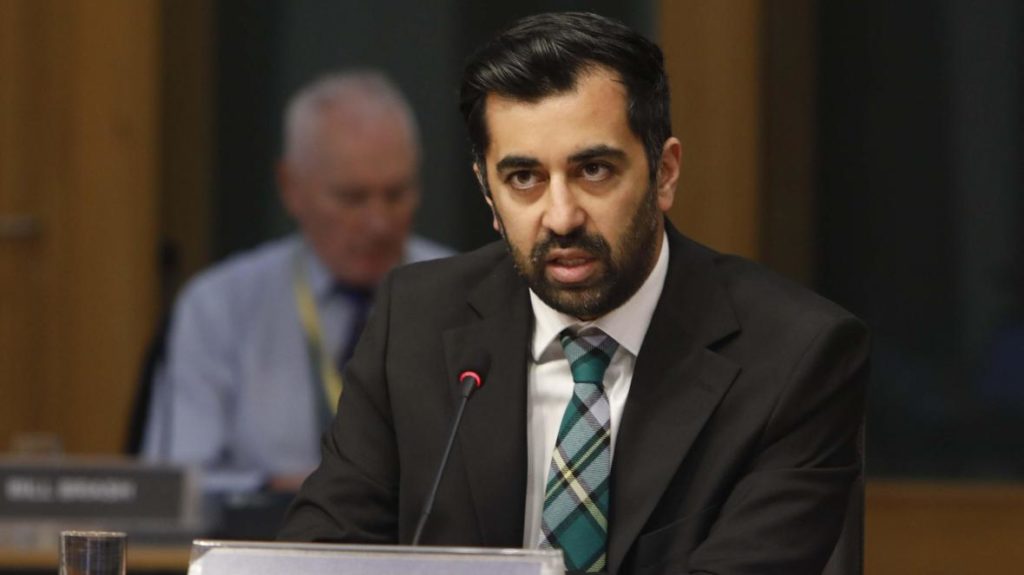Yet another attack in France has made it evidently clear that freedom of press and freedom of speech are under attack. The only way to preserve these rights are to exercise them. However, there are parallels in tactics from both terrorists and the ‘woke’ mob to silence those with whom they disagree – which are arguably two sides of the same coin.
Less than two weeks after Paty’s beheading, France has found itself at the centre of what seems to be a war between disgruntled, offended terrorists and freedom of the press. It will be interesting to see France’s reaction to these attacks, as it has wider ramifications for Western society and freedom of the press. Yet there is a distinct, deafening silence from many on the left regarding these attacks, and a noticeable similarity in tactics from both terrorists and the ‘woke’ mob to silence those they disagree with, or are offended by.
Since the previous article, France has suffered yet another beheading on its soil. Three people were killed during a knife attack inside the Notre Dame Basilica church in Nice; a man (who was the sexton of the church) and two women (one of whom was decapitated). The suspect – named Brahim by the police – acted alone. Police shot Brahim, detained him and sought medical support, and he is alive. The Telegraph reports that Nice’s mayor, Christian Estrosi, has confirmed that the incident is being treated as a terrorist attack. In a quote, he said, “we have two people killed in the church… and a third person was in a bar facing the church where she had taken refuge. Enough is enough…. We have to remove this Islamo-fascism from our territory.”
It’s important to recognize that tactics being employed by these terrorists all come from the idea that their beliefs and worldview are untouchable, and that nobody has the right to criticize, ridicule or otherwise offend said belief. The basic premise is, “what I believe is right, and if you criticize or make fun of it, I have grounds to hurt you in some way.” Human history has shown that fascism has mostly come from the far right, usually manifested in the form of authoritarian ultra-nationalism, characterized by dictatorial power and the forcible suppression of opposition. Leaders such as Mussolini and Hitler were two such fascists.
Nice’s mayor described the attack as ‘Islamo-fascism’, which is a two-part word, meaning fascism in the name of Islam. However, the reason behind fascism is not important; in all its forms, it shares the same fundamental principle – the idea that any one opinion, belief or worldview takes precedence over others, and offending said opinion is grounds to cause harm to another person, is incompatible with the premise of freedom of speech and expression. The two cannot coexist.
With this being said, there is a distinct similarity between fascist tactics and the ‘woke’ mob. The premise of ‘think like me or I’ll hurt you’ is more common in Western society than we’d like to think; in fact, it could be argued that the idea of ‘cancel culture’ – defined as “withdrawing support for public figures and companies after saying or doing something objectionable or offensive” – is simply a less violent form of fascism. Usually, the phrase ‘cancel culture’ is used in the context of freedom of speech and online shaming, but could also be applied to a wider cultural status quo.

People seem to have become very tribal in their nature and how they interact with each other. Whilst it’s important to acknowledge and celebrate the fact that discrimination is generally frowned upon in modern society, at times it feels as though it’s forced and not voluntary. There is a climate that makes people more scared of the consequences of discrimination rather than not discriminating of their own volition, based upon moral values. It’s a kind of negative reinforcement. The motivation to be a good person no longer comes from moral values but from consequences of ‘stepping out of line’, so to speak. In this context, people can’t – and more importantly, shouldn’t – be blackmailed into doing the right thing.
Has the left created a hierarchy of subjectivity? Are there some things – or some people – that are worse to say or offend than others? It would seem this way. There have been cases which demonstrate selective outrage by the left, and it shows that to them, abuse and discrimination is perfectly acceptable as long as it does not offend people whom they agree or identify with. An example of this includes a video circulating online, where a Black Lives Matter protestor hurls verbal abuse towards police officers, including racially abusing a black officer, calling him a ‘coon-ass black man’. Don’t BLM claim to be against all forms of racism, including racist language? If this is the case, then why was it acceptable for this protestor to racially abuse a black man? Where was the outrage from the left? Does him being a police officer suddenly make him ‘less’ black? Had the races been reversed, and a white protestor called a black officer the n-word, there would be uproar.
Regarding the Islamist terrorist attacks in France, the silence is deafening from the left. Fascism and its manifestation (previously employed by the far-right) and tactics, are slowly entering the left’s core beliefs. Freedom of press and expression is historically a liberal policy, yet most people today who stand up for free speech (and stand with Charlie Hebdo) are conservatives and centrists. Why is this? What changed? What happened along the way? When did the left decide that some lives were worth more than others? It could be argued that this is simply a result of identity politics and intersectionality (adopted by many on the left); ideologies which many consider to be more divisive than unifying. There are groups of people that are ‘okay’ to offend and ‘not okay’ to offend. If a person in a group which the left views to be ‘marginalised’ attacks a person not in a marginalised group, excuses are made. In some cases, psychological gaslighting is deployed; the attempt to blame the victim for their own demise.
With free press, everybody is allowed to have an opinion; with state-controlled press, only one viewpoint is available. It could be argued that it’s a form of brainwashing. Terrorists and the ‘woke’ mob agree on one thing: only one worldview is acceptable, and disagreement is grounds for harm in some way. Whilst terrorists will kill you (sometimes in a particularly barbaric fashion), the ‘woke’ mob will hurl abuse, call for someone to be sacked from their job and have their livelihood taken away, and even go so far as to dox them (publish private and sensitive information about an individual to the public for malicious intent). They are simply two sides of the same coin.
Even at a legislative level, there is cause for concern about the attempted curtailment of speech. Humza Yousaf, Justice Minister for Scotland, has said publicly that conversations in the privacy of one’s home that could ‘incite hatred’ must be prosecuted. Politicians are now calling for draconian control as to what one says in the privacy of their own home. Such a law could easily be abused, twisted and manipulated, based upon what one group of people deem to be ‘hateful’. This goes beyond freedom of the press, and instead infringes on our own civil liberties. It’s one thing to try and control what people can say publicly, but a line has been crossed when our privacy is at stake. We must fight this if we truly value our freedoms and democracy.

History has shown that the curtailment of speech and mass censorship never ends well. Those who do not learn from history are doomed to repeat it.

 McG
McG (@RichieMcGinniss)
(@RichieMcGinniss) 
